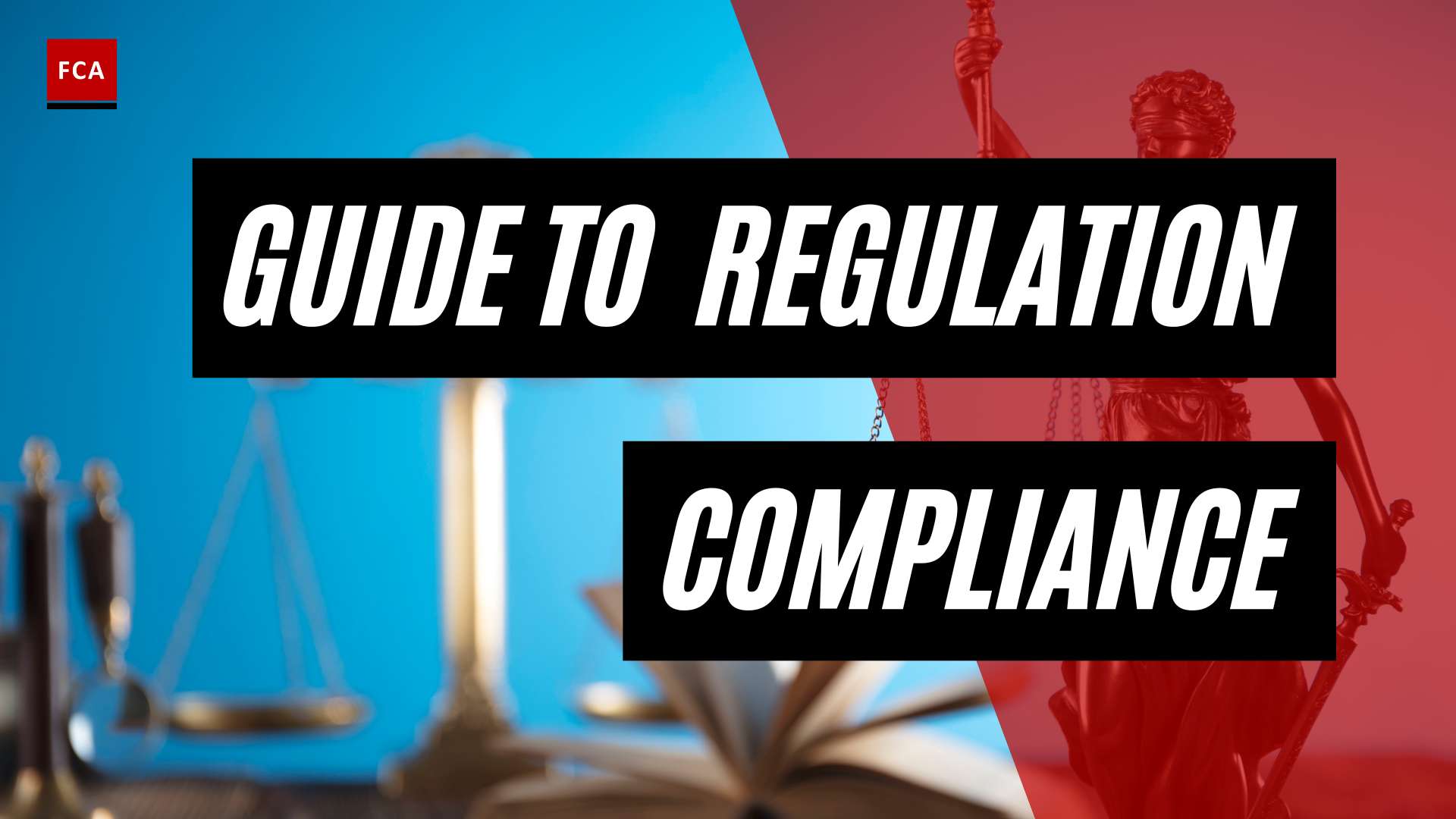AML in E-Commerce: Understanding the Importance
In the rapidly evolving world of e-commerce, the implementation of effective Anti-Money Laundering (AML) policies is of paramount importance. Online marketplaces, serving as intermediaries for various types of transactions, are particularly vulnerable to money laundering activities. Therefore, it is crucial for online marketplaces to understand the growing significance of AML in the e-commerce industry and recognize the impact of financial crimes on their platforms.
The Growing Significance of AML in E-Commerce
As the e-commerce industry continues to flourish, so does the risk of illicit financial activities. Criminals are constantly finding new ways to exploit online platforms for money laundering purposes. In response to this growing threat, governments and regulatory authorities worldwide are strengthening AML regulations and imposing stricter compliance requirements on online marketplaces.
By implementing robust AML policies, online marketplaces can protect their platforms from being misused for money laundering and other illicit activities. A comprehensive AML program helps identify and mitigate risks, safeguard the integrity of financial transactions, and maintain the trust of customers and stakeholders.
Impact of Financial Crimes on Online Marketplaces
Financial crimes, such as money laundering, fraud, and identity theft, pose significant risks to online marketplaces. The e-commerce industry has experienced substantial losses due to fraudulent activities. In 2022 alone, the industry suffered an estimated loss of $41 billion, a number projected to increase to $48 billion by 2023.
Identity theft is a prevalent fraud type in e-commerce, leading to substantial losses for both customers and merchants. Criminals employ various methods, including phishing and purchasing stolen passwords, to gain access to sensitive user data, such as addresses and bank card details. Additionally, card testing is another common practice wherein criminals check the functionality of stolen credit cards by making small purchases. If successful, they proceed to make larger purchases until the card is blocked, resulting in potential losses for merchants (Sumsub).
Moreover, e-commerce money laundering, also known as transaction laundering, involves the use of online platforms to create fake transactions that appear legitimate. Recent cases have shown organizations like ISIS using platforms like eBay for fraudulent money transfers (Sumsub). Such illicit activities not only undermine the financial integrity of online marketplaces but can also have far-reaching consequences for society as a whole.
To combat these growing threats, online marketplaces must establish robust AML policies and procedures. This includes implementing customer due diligence (CDD) processes, transaction monitoring for suspicious activities, and ensuring compliance with reporting obligations and regulatory requirements. By doing so, online marketplaces can create a resilient environment that deters financial crimes, protects users, and fosters trust in the e-commerce ecosystem.
AML Policies for Online Marketplaces
To combat the risks associated with financial crimes, online marketplaces must implement robust Anti-Money Laundering (AML) policies. These policies typically involve three key components: Customer Due Diligence (CDD) processes, transaction monitoring for suspicious activities, and reporting obligations to ensure regulatory compliance.
Customer Due Diligence (CDD) Processes
Customer Due Diligence (CDD) processes are an integral part of AML policies for online marketplaces. These processes involve gathering and verifying customer information to assess the risk of potential money laundering activities. Effective CDD processes should include:
- Identification and Verification: Online marketplaces should implement Know Your Customer (KYC) procedures to verify the identity of their customers. This can include requesting identification documents, such as passports or driver’s licenses, and verifying the information against reliable sources.
- Risk Assessment: Conducting risk assessments allows online marketplaces to assign risk ratings to their customers based on factors such as geographic location, transaction history, and the nature of the business relationship. Higher-risk customers may require enhanced due diligence measures.
- Ongoing Monitoring: Continuous monitoring of customer transactions and activities is crucial to identify any suspicious patterns or behaviors. Automated AML screening tools can help streamline this process by flagging transactions that deviate from the customer’s normal behavior or exceed predefined thresholds.
Transaction Monitoring for Suspicious Activities
Transaction monitoring is another vital component of AML policies for online marketplaces. It involves the continuous surveillance of transactions to detect and investigate any suspicious activities that may indicate potential money laundering. Online marketplaces should implement the following measures for effective transaction monitoring:
- Automated Monitoring Systems: Utilizing advanced monitoring systems that leverage artificial intelligence (AI) and machine learning can help identify unusual transaction patterns and anomalies. These systems can analyze large volumes of data in real-time, enabling the detection of suspicious activities more efficiently.
- Red Flags and Alert Generation: Establishing predefined red flags and thresholds helps identify transactions that require further investigation. Online marketplaces should train their staff to recognize these red flags and promptly escalate any suspicious activities for review.
- Collaboration with Financial Institutions: Online marketplaces should collaborate with financial institutions and payment processors to share information on potentially fraudulent or suspicious transactions. This cooperation enhances the effectiveness of transaction monitoring efforts.
Reporting Obligations and Regulatory Compliance
Online marketplaces must fulfill their reporting obligations to regulatory authorities. They should establish clear procedures to promptly report any suspicious transactions or activities. Key considerations for reporting obligations and regulatory compliance include:
- AML Regulatory Framework: Online marketplaces should familiarize themselves with the AML laws and regulations applicable to their jurisdiction. Compliance with these regulations helps prevent financial crimes and ensures adherence to legal requirements.
- Internal Reporting Mechanisms: Implementing internal reporting mechanisms enables employees to report suspicious activities within the organization. Whistleblower protection policies should be in place to encourage employees to come forward without fear of retaliation.
- External Reporting: Online marketplaces should establish channels for reporting suspicious activities to the appropriate regulatory authorities. This facilitates the sharing of information necessary for investigations and contributes to the overall fight against financial crimes.
By implementing comprehensive AML policies that encompass customer due diligence, transaction monitoring, and reporting obligations, online marketplaces can strengthen their defenses against money laundering and other financial crimes. These policies, coupled with emerging trends such as the use of technology and addressing unique risks, allow online marketplaces to create resilient environments that deter and detect illicit activities.
For more information on AML compliance in e-commerce and additional measures to strengthen your AML program, refer to our articles on aml compliance in e-commerce, kyc for e-commerce businesses, and aml regulations for online businesses.
Emerging Trends in AML Compliance for E-Commerce
As the world of e-commerce evolves, so do the methods used by criminals to exploit online platforms for money laundering activities. To combat these illicit practices, emerging trends in Anti-Money Laundering (AML) compliance for e-commerce are being implemented. Two key trends in this space are the utilization of technology such as AI and machine learning, and addressing unique risks associated with virtual currencies and cross-border transactions.
Utilizing Technology: AI and Machine Learning
Advances in technology have paved the way for more efficient AML compliance processes in online marketplaces. Artificial Intelligence (AI) and Machine Learning (ML) algorithms are being harnessed to enhance the detection and prevention of money laundering activities. These technologies can analyze vast amounts of data in real-time, identifying patterns and anomalies that may indicate suspicious transactions or behavior. By leveraging AI and ML, e-commerce platforms can automate the monitoring and analysis of financial activities, making it easier to detect potential money laundering schemes.
The benefits of utilizing AI and ML in AML compliance for e-commerce are numerous. These technologies can significantly reduce the manual effort required for monitoring transactions, making the process more efficient and cost-effective. Additionally, AI and ML algorithms can continuously learn and adapt based on new information, improving the accuracy and effectiveness of AML systems over time. By incorporating these technologies into their AML policies, online marketplaces can stay one step ahead in the fight against financial crime.
Addressing Unique Risks: Virtual Currencies and Cross-Border Transactions
Virtual currencies, such as cryptocurrencies, present unique challenges when it comes to AML compliance in e-commerce. These digital assets offer a level of anonymity and have the potential to facilitate illicit financial activities. To address these risks, online marketplaces must implement robust AML policies specific to virtual currencies. This includes conducting thorough know-your-customer (KYC) procedures, monitoring transactions involving virtual currencies, and reporting suspicious activities in accordance with regulatory requirements.
Cross-border transactions also pose increased risks for money laundering in e-commerce. Criminals may exploit the global nature of online marketplaces to move funds across different jurisdictions, making it challenging to detect illicit activities. AML policies for e-commerce must include enhanced due diligence measures for cross-border transactions, including screening for politically exposed persons (PEPs) and conducting additional risk assessments based on the involved countries.
By proactively addressing the unique risks associated with virtual currencies and cross-border transactions, online marketplaces can strengthen their AML defenses and protect themselves from being unwittingly used as conduits for money laundering activities.
As technology continues to advance and criminals adapt their methods, it is vital for e-commerce platforms to stay ahead of the curve by incorporating these emerging trends into their AML compliance strategies. By utilizing AI and ML technologies and addressing the specific risks presented by virtual currencies and cross-border transactions, online marketplaces can build resilient AML policies that effectively combat financial crime in the digital realm.
Challenges and Risks in E-Commerce AML
As e-commerce continues to thrive, it also faces numerous challenges and risks when it comes to Anti-Money Laundering (AML) compliance. Understanding these challenges is vital for online marketplaces to develop effective AML policies and mitigate the risks associated with financial crime. Here are three key challenges and risks in e-commerce AML:
Fraud and Money Laundering Statistics in E-Commerce
Fraud and money laundering pose significant threats to the e-commerce industry. In 2022, the industry experienced an estimated loss of $41 billion due to fraud and money laundering, with this amount expected to grow to $48 billion by 2023 (Sumsub). These staggering figures highlight the urgent need for robust AML measures to protect businesses and consumers alike.
Identity Theft and Payment Fraud in Online Transactions
Identity theft is a prevalent form of fraud in e-commerce, causing substantial financial losses to customers and merchants each year. Criminals employ various methods, such as phishing and purchasing stolen passwords, to gain access to user accounts and sensitive information, including addresses and bank card details. This type of fraud not only results in financial harm but also damages consumer trust in online transactions.
Transaction Laundering and Illicit Activities
E-commerce money laundering presents a unique challenge. Criminals exploit online platforms to create seemingly legitimate transactions that facilitate illicit financial activities. For instance, terrorist organizations like ISIS have been known to use platforms like eBay for fraudulent money transfers (Sumsub). Detecting and preventing transaction laundering requires advanced AML mechanisms to identify suspicious patterns and behaviors.
To address these challenges, online marketplaces must implement comprehensive AML policies and procedures. This includes adopting robust customer due diligence (CDD) processes, implementing transaction monitoring systems to identify suspicious activities, and ensuring compliance with reporting obligations and regulatory requirements. By doing so, marketplaces can effectively combat financial crime and protect their reputation.
It is important for e-commerce businesses to stay up-to-date with evolving AML regulations and incorporate emerging technologies to strengthen their AML efforts. Implementing advanced technologies such as AI and machine learning can enhance the detection of money laundering patterns and help identify potential risks associated with virtual currencies and cross-border transactions.
By recognizing these challenges and deploying proactive AML measures, online marketplaces can create a safer environment for conducting transactions and foster trust among customers and stakeholders.
AML Regulations for Online Marketplaces
To ensure the integrity of financial systems and combat money laundering and terrorist financing, online marketplaces must adhere to anti-money laundering (AML) regulations. Compliance with these regulations is essential for maintaining the trust and security of e-commerce transactions. In this section, we will explore the role of the Financial Industry Regulatory Authority (FINRA) in AML compliance, the importance of complying with the 6th Anti-Money Laundering Directive (6AMLD), and the penalties for non-compliance and reporting failures.
The Role of FINRA in AML Compliance
The Financial Industry Regulatory Authority (FINRA) plays a crucial role in overseeing the compliance of online marketplaces with AML regulations. FINRA provides various platforms, such as FINRA Data, FinPro, FINRA Gateway, and DR Portal, to facilitate access to relevant information and services for different user groups, including the public, industry professionals, member firms, and case participants (FINRA). Online marketplaces can rely on the guidance and policies provided by FINRA to ensure compliance with AML regulations, safeguard against financial crimes, and protect their customers.
Compliance with the 6th Anti-Money Laundering Directive (6AMLD)
The 6th Anti-Money Laundering Directive (6AMLD) is a significant regulatory framework implemented by the European Union to strengthen transparency and traceability in financial transactions and combat money laundering and terrorist financing. It was transposed into UK law on December 10, 2020 (Financial Crime Academy). Under 6AMLD, online marketplaces fall under the scope of entities required to comply with stricter AML regulations. This directive emphasizes the importance of customer due diligence processes and reporting obligations for online marketplaces (Financial Crime Academy). Compliance with 6AMLD is crucial for online marketplaces operating within the European Union to ensure transparency and prevent illicit financial activities.
Penalties for Non-Compliance and Reporting Failures
Non-compliance with AML regulations and failures to report suspicious transactions can have severe consequences for online marketplaces. The penalties for non-compliance or failing to report suspicious transactions under 6AMLD are significant, potentially resulting in substantial fines and even imprisonment. These penalties serve as a strong deterrent and underscore the importance of diligently implementing and adhering to AML policies and procedures. Online marketplaces must prioritize compliance efforts to mitigate the risks associated with money laundering and ensure the safety of their platforms and users.
By understanding the role of FINRA in AML compliance, the significance of complying with the 6th Anti-Money Laundering Directive (6AMLD), and the potential penalties for non-compliance and reporting failures, online marketplaces can take proactive steps to establish robust AML policies and procedures. Compliance with AML regulations is vital for creating resilient online marketplaces that foster trust, protect against financial crimes, and contribute to the integrity of the global financial system.
Implementing Effective AML Policies in Online Marketplaces
To ensure the resilience of online marketplaces against financial crime, it is essential to implement effective Anti-Money Laundering (AML) policies. This involves coordination between compliance, fraud prevention, and legal teams, ongoing training for employees on money laundering red flags, and continuous improvement to adapt to evolving tactics.
Coordinating Compliance, Fraud Prevention, and Legal Teams
Establishing effective AML policies for online marketplaces requires coordination between compliance teams, fraud prevention units, and legal departments. This collaboration ensures comprehensive coverage of AML risks in the digital marketplace environment. By working together, these teams can develop robust policies, procedures, and controls to identify, prevent, and report suspicious activities.
The compliance team plays a pivotal role in designing and implementing AML policies and procedures based on regulatory requirements. They conduct risk assessments, monitor transactional activities, and ensure compliance with applicable AML regulations (aml compliance in e-commerce). The fraud prevention team focuses on detecting and mitigating fraudulent activities, employing sophisticated technologies and tools to identify potential risks (aml monitoring for digital payments). The legal team provides guidance on legal obligations, reviews policies, and ensures adherence to AML regulations (aml regulations for online businesses).
Ongoing Training for Employees on Money Laundering Red Flags
An effective AML program for online marketplaces should include ongoing training for employees to recognize money laundering red flags, conduct risk assessments, and understand their role in preventing financial crime. Training enables employees to identify suspicious activities, such as unusual transaction patterns, inconsistent customer behavior, or attempts to conceal the source of funds.
By providing regular training sessions, online marketplaces can ensure that employees stay updated on the latest AML regulations and emerging money laundering techniques (aml training for e-commerce staff). Training should cover topics such as Know Your Customer (KYC) procedures, AML due diligence, transaction monitoring, and reporting obligations (kyc for e-commerce businesses). By empowering employees with the necessary knowledge and tools, online marketplaces can create a strong line of defense against financial crime.
Continuous Improvement and Adaptation to Evolving Tactics
The landscape of financial crime is constantly evolving, requiring online marketplaces to continuously improve their AML policies and adapt to new tactics employed by criminals. Regular risk assessments and reviews of existing controls are essential to identify areas of weakness and implement necessary enhancements. This includes staying up to date with emerging trends in AML compliance for e-commerce, such as utilizing artificial intelligence and machine learning technologies to detect suspicious activities.
By fostering a culture of vigilance and continuous improvement, online marketplaces can stay one step ahead of money launderers and fraudsters. This involves monitoring industry best practices, sharing information and insights, and actively participating in AML forums and networks. By collaborating with industry experts, online marketplaces can enhance their AML capabilities and contribute to the collective fight against financial crime.
Implementing effective AML policies in online marketplaces requires coordination, ongoing training, and a commitment to continuous improvement. By prioritizing compliance, empowering employees, and staying ahead of emerging risks, online marketplaces can build resilient AML programs that protect their businesses, customers, and the integrity of the financial ecosystem.
AML Compliance Training for E-Commerce Employees
To maintain robust Anti-Money Laundering (AML) policies in online marketplaces, it is crucial to provide comprehensive training to employees. Proper training equips staff members with the knowledge and tools necessary to detect and prevent illegal financial activities, ensuring compliance with regulations and mitigating the risk of financial crime.
Importance of AML Training in Online Marketplaces
Training employees on AML policies and procedures is essential for online marketplaces to ensure compliance with regulations and safeguard against financial crimes such as fraud, money laundering, and terrorism financing. With transactions often conducted remotely in e-commerce, the risk of illegal financial activities is heightened. AML compliance training plays a pivotal role in educating employees about their responsibilities and empowering them to identify red flags early on. By imparting this knowledge, organizations can foster a culture of vigilance and proactively prevent money laundering and fraud.
Key Topics to Cover in AML Training Programs
AML compliance training should encompass a range of topics to provide employees with a comprehensive understanding of their roles and responsibilities. Some key areas to cover in AML training programs for e-commerce employees include:
-
Recognizing Suspicious Transactions: Employees should be trained to identify signs of potentially suspicious transactions, such as unusual patterns, high-value transactions without a clear business rationale, or transactions involving high-risk jurisdictions. By understanding these indicators, employees can promptly report suspicious activities and contribute to the prevention of financial crimes.
-
Understanding Customer Due Diligence (CDD): CDD is a vital aspect of AML compliance. Training should educate employees on the importance of verifying customer identities, conducting risk assessments, and performing ongoing monitoring of customer transactions. This knowledge enables employees to effectively implement CDD processes and fulfill their obligations in preventing money laundering and illicit activities.
-
Reporting Requirements: AML training should emphasize the importance of reporting obligations. Employees should be aware of the specific reporting procedures within their organization and the relevant regulatory authorities. Timely and accurate reporting plays a crucial role in combating financial crimes and supporting law enforcement efforts.
Leveraging Learning Management Systems (LMS) for Effective Training
Online marketplaces can leverage Learning Management Systems (LMS) to deliver effective AML compliance training to their employees. An LMS, such as Dokeos, offers customizable training modules and assessments that can be tailored to the specific needs of the organization. Through the LMS, employees can access engaging and interactive training materials, ensuring that the training is informative and retains their attention. Additionally, the LMS allows organizations to track employee progress, monitor completion rates, and maintain comprehensive training records for audit purposes.
By utilizing an LMS for AML compliance training, online marketplaces can streamline the training process, ensure consistency in content delivery, and provide employees with a user-friendly platform for learning. This approach facilitates ongoing education and awareness within the organization, empowering employees to stay abreast of the evolving landscape of financial crimes and regulatory requirements.
In conclusion, AML compliance training is of paramount importance in online marketplaces to prevent financial crimes and maintain regulatory compliance. By covering key topics, such as recognizing suspicious transactions, understanding customer due diligence, and reporting requirements, organizations can equip their employees with the necessary knowledge and skills to actively contribute to the fight against money laundering and fraud. Leveraging a Learning Management System further enhances the effectiveness of training, providing a centralized platform for delivery, monitoring, and record-keeping.








